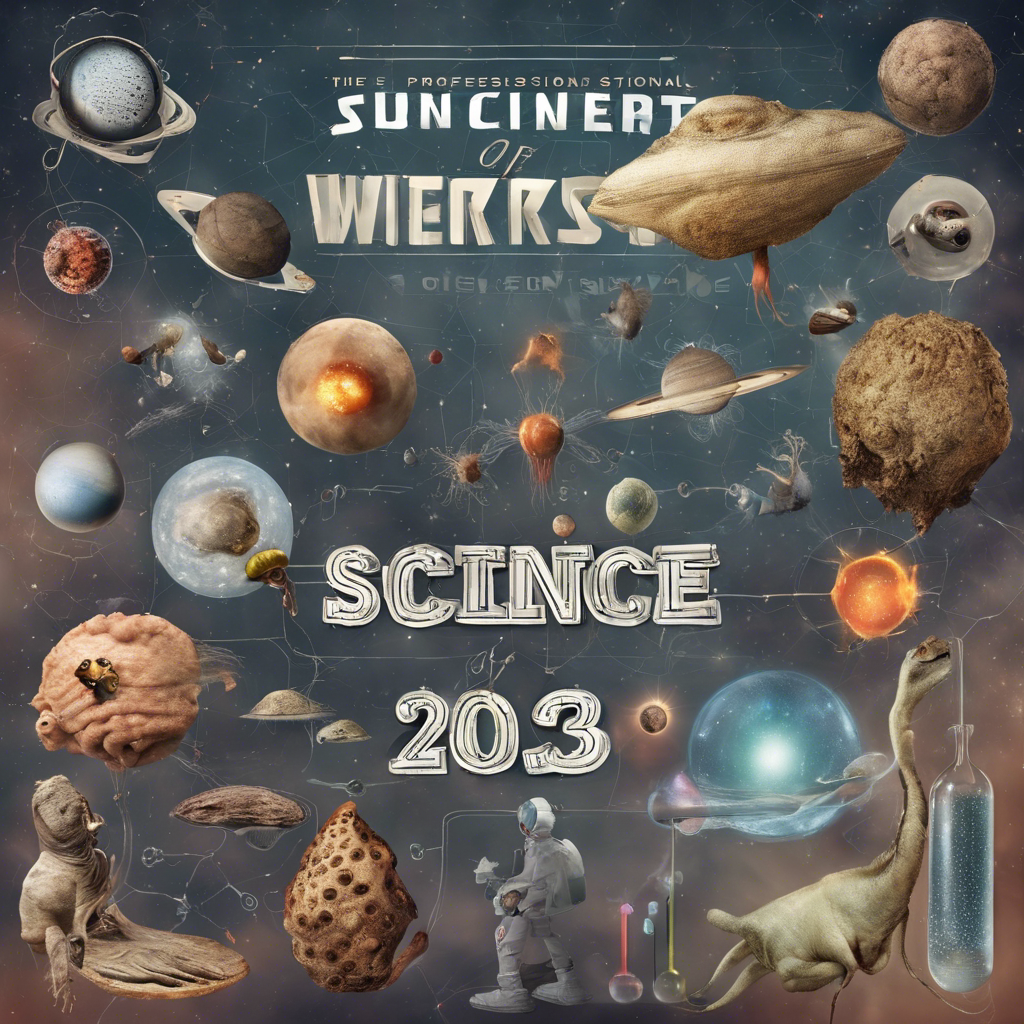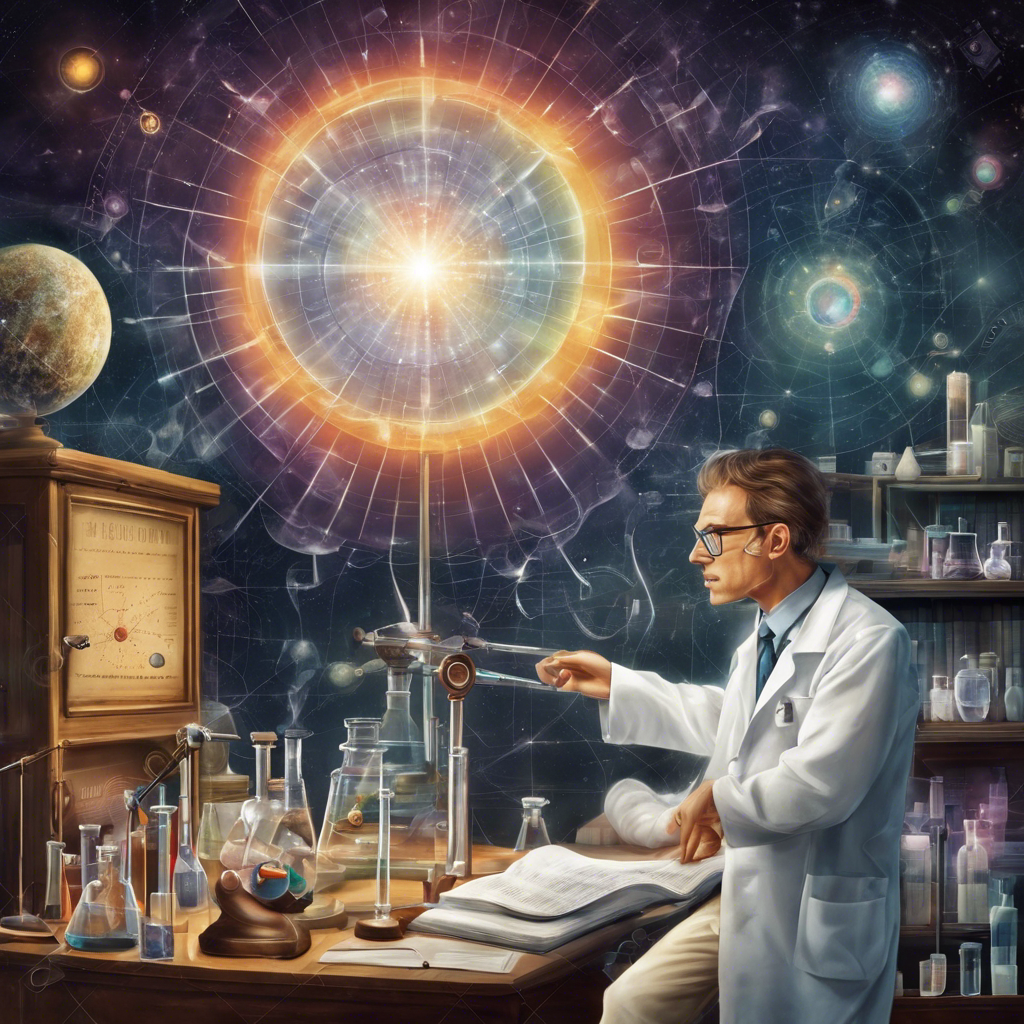The Unanswered Questions of Science: Exploring the Mysteries That Keep Scientists Awake at Night

Delving into the Enigmatic Frontiers of Scientific Inquiry
As the year draws to a close, it is an opportune time to reflect on the vast expanse of human knowledge and the persistent mysteries that continue to elude us. Science, with its insatiable curiosity, has always sought to unravel the secrets of the universe. Yet, the more we uncover, the more questions arise, reminding us of the boundless nature of knowledge. In this article, we will explore some of the most perplexing and captivating open questions in science, each a testament to our insatiable quest for understanding.
What is the Universe made of?
At the forefront of cosmic inquiry lies the enigma of the Universe’s composition. Astonishingly, we comprehend only 5% of its makeup. This meager fraction comprises familiar atoms, neutrinos, and their constituents. The remaining 95% is shrouded in darkness, with dark matter and dark energy dominating the cosmic landscape. Dark matter, invisible yet with undeniable gravitational influence, pervades galaxies, while dark energy propels the expansion of the cosmos. Despite decades of investigation, the true nature of these elusive entities eludes us, leaving scientists yearning for answers.
How did life come about?
The emergence of life on Earth, a profound mystery that has captivated scientists for centuries, continues to defy a definitive explanation. From the primordial soup, non-living atoms assembled into progressively complex molecules, eventually giving rise to the first living entity capable of metabolism and reproduction. Yet, the transition from inanimate matter to the intricate web of life remains an enigma. The essence of intentionality within living organisms remains elusive, leaving scientists in awe of the intricate tapestry of existence.
Are we alone in the Universe?
The quest for extraterrestrial life has tantalized the human imagination for centuries. Beyond the mere existence of life elsewhere, the question of intelligent life pervades our curiosity. How common is life in the cosmos? And if intelligent life is abundant, why have we not made contact? These questions have profound implications for our understanding of our own place in the Universe and the future of our planet. Exploring the search for life beyond Earth, we find ourselves contemplating the vast possibilities that lie beyond our own celestial shores.
What makes us human?
As we ponder the essence of humanity, we confront the intriguing question of what sets us apart from our animal counterparts. While we share a significant genetic similarity with our primate relatives, the distinction lies in the complexity of our neural architecture, the development of language and tool-making, and the evolution of culture. The enigma of our humanity lies in the interplay of these factors, urging us to delve deeper into the origins of our unique cognitive capabilities.
What is consciousness?
The nature of consciousness, the essence of our self-awareness, remains an enigmatic frontier of scientific exploration. How does the brain generate the subjective experience of being? Can consciousness be replicated in machines? These questions challenge our understanding of the mind-body connection and the very fabric of our existence. Exploring the evolutionary purpose of consciousness adds another layer of intrigue to this captivating inquiry.
Why do we dream?
Despite spending a significant portion of our lives in slumber, the purpose and function of dreams continue to elude us. Are dreams a physiological or psychological necessity? Do they offer a glimpse into our unconscious desires, as Freud proposed? Or are they simply random manifestations of a resting brain? The mysteries of the dream realm persist, leaving us to ponder the significance of these nocturnal adventures.
Why does matter exist?
According to the laws of physics, matter should have an equal counterpart in the form of antimatter. Yet, the universe is predominantly composed of matter, with antimatter seemingly scarce. The mystery lies in the absence of antimatter and the asymmetry favoring matter. Understanding this fundamental imbalance could shed light on the origins of the universe and the forces at play during its formation.
Are there other universes?
The tantalizing notion of multiple universes, each with its own unique properties, emerges from the realms of cosmology and particle physics. While modern theories predict the existence of other universes, confirming their presence poses a significant challenge. The multiverse hypothesis, while intriguing, remains a subject of debate within the scientific community, raising questions about its testability and its status as a scientific concept.
Where will we put all the carbon?
As industrialization accelerates, the pressing concern of carbon emissions and their impact on global warming demands urgent attention. The challenge lies in finding sustainable solutions to mitigate our environmental impact. Predictions range from mildly concerning to dire, emphasizing the critical need for collective action to address this global crisis. The time to act is now, for the sake of future generations and the preservation of our planet.
How can we get more energy from the Sun?
With an abundance of untapped solar energy, the quest for harnessing the power of the Sun holds promise for a sustainable future. Exploring more efficient methods of utilizing this boundless resource, such as nuclear fusion, offers hope for resolving our energy crisis. However, progress in this field remains slower than desired, necessitating a concerted effort to accelerate our transition to renewable energy sources.
Conclusion:
The unanswered questions of science serve as a testament to the boundless nature of human curiosity. From the composition of the universe to the origins of life and the mysteries of consciousness, each inquiry reveals the depths of our collective ignorance. Yet, it is in the pursuit of these enigmas that we push the boundaries of knowledge, forever striving to unravel the secrets of the cosmos. As we bid farewell to a tumultuous year, let us embrace the unknown and embark on a new era of scientific discovery, guided by our insatiable thirst for understanding.





